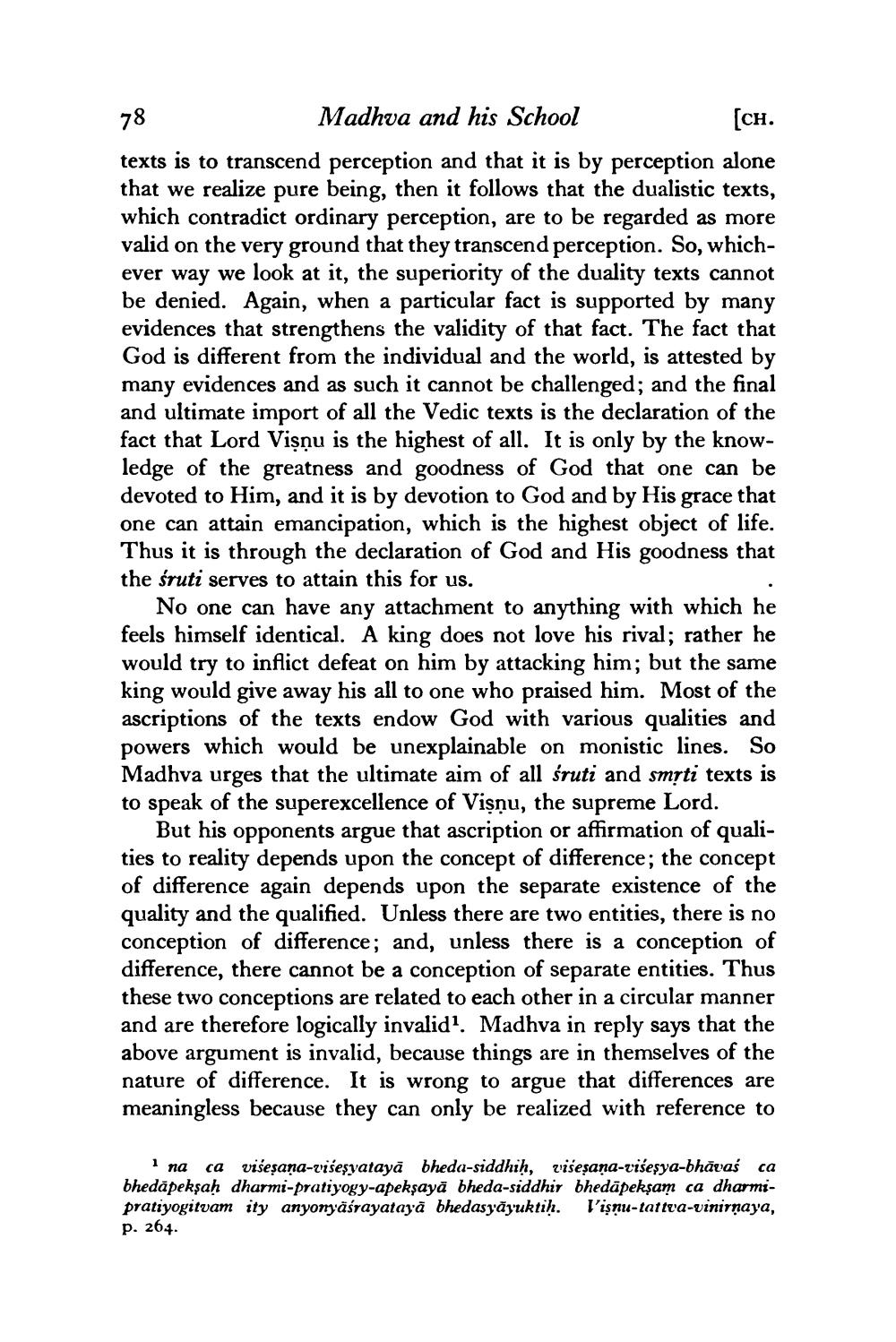________________
78
Madhva and his School
[CH.
texts is to transcend perception and that it is by perception alone that we realize pure being, then it follows that the dualistic texts, which contradict ordinary perception, are to be regarded as more valid on the very ground that they transcend perception. So, whichever way we look at it, the superiority of the duality texts cannot be denied. Again, when a particular fact is supported by many evidences that strengthens the validity of that fact. The fact that God is different from the individual and the world, is attested by many evidences and as such it cannot be challenged; and the final and ultimate import of all the Vedic texts is the declaration of the fact that Lord Visnu is the highest of all. It is only by the knowledge of the greatness and goodness of God that one can be devoted to Him, and it is by devotion to God and by His grace that one can attain emancipation, which is the highest object of life. Thus it is through the declaration of God and His goodness that the śruti serves to attain this for us.
No one can have any attachment to anything with which he feels himself identical. A king does not love his rival; rather he would try to inflict defeat on him by attacking him; but the same king would give away his all to one who praised him. Most of the ascriptions of the texts endow God with various qualities and powers which would be unexplainable on monistic lines. So Madhva urges that the ultimate aim of all śruti and smrti texts is to speak of the superexcellence of Visņu, the supreme Lord.
But his opponents argue that ascription or affirmation of qualities to reality depends upon the concept of difference; the concept of difference again depends upon the separate existence of the quality and the qualified. Unless there are two entities, there is no conception of difference; and, unless there is a conception of difference, there cannot be a conception of separate entities. Thus these two conceptions are related to each other in a circular manner and are therefore logically invalid1. Madhva in reply says that the above argument is invalid, because things are in themselves of the nature of difference. It is wrong to argue that differences are meaningless because they can only be realized with reference to
1 na ca višeṣaṇa-viśeşyataya bheda-siddhiḥ, viseṣaṇa-viśeşya-bhāvas ca bhedapekṣaḥ dharmi-pratiyogy-apekṣaya bheda-siddhir bhedapekṣam ca dharmipratiyogitvam ity anyonyaśrayataya bhedasyāyuktiḥ. Vişnu-tattva-vinirnaya,
p. 264.




